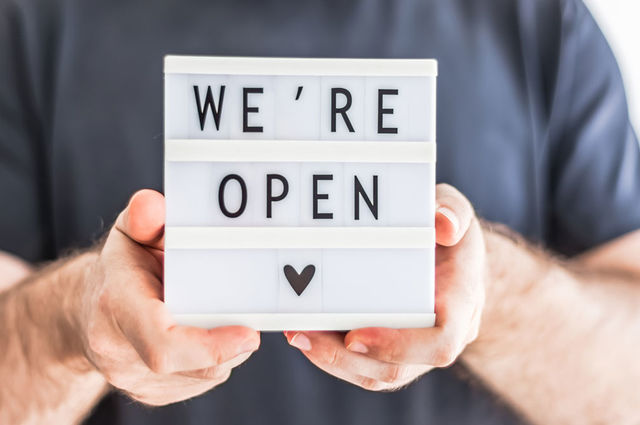Are there any quick-fix IT solutions for hotels in the post-COVID new normal?
12 experts shared their view
Most hoteliers agree that, at least for the foreseeable future, hotel stays will be different. Guests will be more conscious about hygiene, social distancing and expecting a contactless guest-journey. At the same time, most hotels DO NOT HAVE the means right now to make big investments in cutting-edge new tech.
So we ask ourselves, what are the inexpensive, easy, and quick to implement solutions that hotels could be implementing today to support changed guest-expectations?
IT professionals need to wear their data analytics hat for the next several months at the very least. The problem is that all metrics comparisons to last year same day, week, and month are useless for the first time. Management relies upon IT professionals to extract comparative data to aid decision-making, and this won't work when properties have been shut down or occupancy is so low as to make comparisons useless.
The best we can do in the short run is to carefully analyze daily reservation activity and the limited daily stats generated in the short run for micro-trends, then point out to management the incremental changes in rate, length of stay, and guest type affecting the future, focusing upon occupancy and room revenue projected. There are third parties able to do this perhaps better, but not faster. Your advantage is speed and more intimate understanding of the property's "normal" trends.
The availability of NFC contactless payment (Restaurant POS, Front Desk, Kiosk), and NFC contactless access control (guest room doors, parking garages, elevators, meeting rooms, gyms, spas, front doors etc.) in hotels to reduce the need to touch shared surfaces that allow the transmission of coronavirus is both an urgent need and an intelligent response to one of the most significant issues that the hospitality industry has ever faced: coronavirus transmission and covid19 . Importantly also, NFC contactless, if widely implemented, would demonstrate that the hospitality industry has the well-being of its guests and employees front of mind once hotels start to emerge from lock-down.
NFC payment is everywhere in Retail, via Apple Pay, Android Pay, and other similar products, thus it is already familiar to millions of hotel guests. An extension of the same NFC contactless to address hotel access control needs is evidently a smart thing to consider at this time, being simply RFID on a phone or watch, and hence, extremely low-cost and quick to implement when compared against alternatives.
There is only one problem - Apple devices: although NFC works for payment (Apple Pay), Apple has not yet extended its implementation to permit NFC Access control via the Apple Wallet. The required functionality and API's are present in the current iOS release, and all we require from Apple is its willingness to digitally authorise (via digital certificate) hotel RFID/NFC keys such that they may be added to the Apple Wallet to be used in place of physical RFID cards. (note: the key card is present in the Wallet and so there is no requirement for a hotel App to control key access. NFC access control is therefore available to all hotels - no app required). (note also that Android already provides the necessary NFC Access control capability).
Now is the time for the hotel industry to speak with one voice and request help from Apple. This could be a game-changer.
RPA - Robotic Process Automation - is growing quickly. It is an application of technology, governed by business logic and structured inputs, aimed at automating business processes. It uses AI to import data from screens and forms. It is relatively quick, easy, and low-cost to implement and co-exists with other tech, eg sits alongside a PMS or finance system.
- Benefits: reduction in staff workloads, improvement in accuracy, speed. It is NOT just green screen scraping which was 1980s tech and frequently failed if screen layouts changed.
- Downsides: could be used to hide/pave over bad processes, rather than remove/fix them
Using RPA tools, a company can configure software, or a “robot,” to capture and interpret applications for processing a transaction, manipulating data, triggering responses, and communicating with other digital systems. RPA can include machine to human transfers eg for exception handling. Applications include system to system links (with/without APIs), email interpretation & handling, routine processing eg applications, invoice handling, cancellations, fraud checks, etc. Key players in the market include UI Path, Blue Prism, and Automation Anywhere. A great example is UI Path's implementation in the Mater Hospital Dublin which simplifies admin for senior nurses to give them more time to deliver primary care.
COVID-19 testing: https://www.irishtimes.com/business/technology/mater-hospital-turns-to-robots-to-help-in-battle-against-covid-19-1.4217757
The main things that could or should be done are. 1: guest communication platforms, either a Whats App for business or a dedicated platform, guest's communication should be digital and remove the need to go to the reception or concierge. 2: Link this to QR codes. Remove all paper menus, wine lists, in-room breakfast, and in-room compendiums and replace them with QR codes linked to digital menus for guest ordering. Potentially even removing guest amenities in the room (hairdryer, bathroom amenities, shoe cleaning kit, sewing kit, iron and ironing board, minibar items, paper and pen, coffee machine, magazines, shoehorn, slippers, bathroom scales) and then request the guest asks for them in the communication platform or again QR code to request. Guests will be worried about touching things other guests could have potentially touched, housekeeping will have new procedures in place and a lot more to do as well. By removing these items by default but still allowing the guests to request may be a stop-gap for the moment. 3: Finally encourage or insist on contactless payments. This could be the suspension of sending items to the room bill from the bar or restaurant and asking guests to pay direct on the spot. Would save on a lot of contact and paper and pen signing.
the first thing i would undertake is a complete forensic audit of all your IT systems to determine the following...
1. cost effectiveness - are their opportunities to renegotiate existing agreements with suppliers or identify new applications that embrace next generation technology that maybe more cost effective (eg if you have not already make the move from premise based to cloud technology with monthly SaaS payments )
2. suitability post covid19 with contactless being the new buzz word. Take the time to research technologies that meet this requirement ie mobile key, mobile check-in , kiosks , robots, guest messaging apps so that when investment dollars become available you will be ready to move quickly
3. Cleanliness and hygiene is also going to become more critical particularly if a covid 19 vaccine takes longer than expected to be developed . What steps can you take to convince your guests that your hotel both guestrooms and public areas are 100% safe . If you have not already done so invest in inexpensive guest messaging apps that you can use to reinforce the steps you are taking to address the safety measures that guests will demand . Technologies such as UVC lighting etc are worth considering but most are expensive and are not short term solutions
I believe there are three immediate action steps hoteliers, especially independents, can implement in a relatively fast and inexpensive fashion:
1. Develop a “Here is how we make your stay with us safer than ever” program with sanitation and safety protocols at the property, including:
- Infrared fever detection for each guest arrival (devices on Amazon start at $299)
- Contactless guest servicing technology applications such as mobile-check-in and virtual concierge as well as mobile assistants in the guest rooms, etc.
- Floor mapping in the lobby outlining pathing for guest check-in and movement and safe distances between guests.
- Masks, gloves and disinfecting wipes made available to every guest
- Intense sanitation in common areas and guest rooms - name the exact procedures and brand names of chemicals used
- Attendant to disinfect/wipe out touch screens of the self-check-in and self-ordering kiosks and elevator buttons.
- To enforce social distancing: Rearrange the seating furniture in the lobby and tables in the restaurant, breakfast, dining room.
2. Communicate the new sanitation and safety program via your marketing agency and PR firm to all of your customers - past guests, loyal customers, group planners, tour operators, distribution partners, media, etc. Communicating your property's post-COVID-19 readiness via the property website, email, social media, CRM and loyalty program messaging, distribution partners, etc. not only addresses your customers' main concern in the current environment but also provides a tremendous brand value to your property.
3. Consider partnering with cloud-native technology vendors to address some of the main safety, productivity, and profitability issues in the post-crisis period. Almost all of the cloud hotel tech vendors charge very low or no set-up fees and then ongoing small fees per room per month. The must-have applications in the post-crisis era include:
- Mobile check-in is a must-have option in this environment of safety concerns and preferences for contactless hotel check-in.
- Guest Services Tech Applications: AI-powered Voice Assistants in each hotel room, enabling utility controls, entertainment, communications with hotel staff, virtual concierge, etc., entertainment hubs able to sync the SmartTV with guests' own streaming service accounts, Issue resolution and customer service messaging services, etc.
- Revenue Management System (RMS), much needed to maximize revenues and successfully compete in the super complex post-crisis marketplace. Today's RMS technologies have advanced to a level unthinkable 10, 5 even a year ago and have become real-time, automated price-and-strategy recommendation engines, powered by AI and ML, supported by dozens and dozens of APIs with real-time data feeds. An RMS in place, coupled with an experienced revenue manager, can lift room revenues by 20%-40%.
- Customer Relationship Management (CRM) System, now needed more than ever to engage, acquire and retain guests and build customer loyalty and boost repeat business, which is 10-15 times cheaper than acquiring new guests or acquiring OTA customers.
In a time of scarce resources and where caution is required it is sometimes astonishing that some experts propose and advocate a level of IT investment that hardly can fit the budgets of distressed companies that face diminished demand and significant drops in revenue. The recent study published by IDeaS, “The Journey to Recovery”, reveals the intention of 42% of the inquired to reduce costs in technology tools. Curiously the same group of industry leaders inquired by the SAS's company revealed intentions to significantly reduce the costs with staff, both hourly and salaried ( 70% and 58% respectively) which seems a paradox since a logical path for this reduction in labor costs would be the more intensive usage of technology to increase the levels of automation and business processes digitalization that could compensate the unavailability of human resources.
Facing this situation, the number of “quick fixes” that an IT department can implement in a post-COVID environment is determined by the actual richness of the information systems and, above all, the business expertise of the IT leadership. In a nutshell, three different scenarios exist
- The company has a modern IT ecosystem and IT leadership with strong business skills. In this scenario using the platforms to its full extent and adapt the business processes can allow the creation of IT-based solutions fast and at minimal or no cost. In our opinion, the core of these solutions will be focused on empowering the now much more demanding housekeeping operations and portions of the guest journey.
- Companies with very technical IT leadership can face difficulties in looking for the same quick fixes since the knowledge of the business is the key factor to analyze the actual “status quo” and identify opportunities. We believe that this type of company will face more difficulties in taking full advantage of their installed technology base. This limitation can be overcome by the creation of multidisciplinary teams for the post-COVID planning
- Independent Hotels and small/medium without senior IT leadership will face major difficulties and most likely will be unable to identify opportunities in their IT ecosystem. Our experience in discussing post-COVID scenarios with similar organizations shows that most of them feel lost and are desperately looking at the marketplace for low-cost solutions that in many cases do not really fit properly a hotel operation needs. Our experience shows that without using external help like consultants and having some capacity for investment these hotels and group will have their business processes and systems adapted to the post-COVID scenario in a very limited manner with all the negative consequences in guest experience and staff productivity.
As conclusion we believe that only a limited number of hotel companies will be able to deploy rapidly solutions for the new normal without incurring some level of additional costs and investment.
IT solutions for the current situation can be split into two areas: in-property interactions and communication. First, in the hotel, there are straightforward steps like online check-in and check-out. Second, during the guest-journey, starting on the hotel's website booking process all the way until the post-stay phase, clear communication with the guest is paramount. Messaging has to be able to cover every step, be personalized to each guest, and quickly adapt to changing conditions.
It cost money to make money. Doing nothing is the last thing hotels will want to do. While it may seem hard and strange to invest in new technology during this uncertain time, I believe it is really important to actually make changes now. Today's hotel technology is all available as SaaS so you only pay a monthly fee and have mostly little or no initial cost to get it going. Move your stack to the cloud NOW, is I think a first step hotels should take. Likely hotels will open up with low occupancy and less staff, so a perfect time to introduce new technologies and processes. A second step is to ensure the hotel has clear technologies in place to facilitate social distance and contactless check-in and out, and this should include technologies that can help with offering room upgrades. Now is the time to enable the choice of service! Guests still will want to come to the front desk, but you should enable guests who prefer to limit contact, to do it all by themselves, on their phone, or on a self-service check-in/out station. Offering room upgrades digitally is another affordable and simple to activate solution, that will help bring in some high margin revenue.
If hotels think SaaS, a new tech stack, does not have to be that costly!
“As guests slowly return to hotels, they will do so with a heightened sense of hygiene. We can logically predict an increased demand for a “touch-free” experience across the guest journey. This might well prove to be the trigger for wide-scale adoption of the kiosk and mobile check-in/check-out, for example. Uptake of the mobile key is also likely, especially given that the associated technology is rapidly evolving to support a more straightforward guest experience. In addition, we are likely to see an increase in the use of chatbots, guest request platforms, and other communication tools.”
“There are a plethora of innovative solutions on the market that can make a significant contribution in these and other areas, but their progress has been hampered by the shackles of legacy systems. Hotels will often benefit from reviewing their entire tech stack in order to implement the above solutions effectively. The next generation of core systems such as PMS is cloud-native, self-service, fully open, instantly connectible and offer “app stores” where third party systems can be freely integrated and trialed.”
I'd like to start by saying that most modern, cutting-edge technology costs far less than many think - and the savings to be made in resource-hours alone often directly demonstrate a positive ROI! Naturally, you expect me to say this, as the CEO of a high-tech hospitality software vendor - but luckily, it's true!
I'd suggest the hotelier looks for ways their current tech-stack can support as many contactless guest transactions as possible. Reducing physical contact between staff and guests during check-in and check-out would be my first port of call. It's not only the guests who are worried about hygiene, but we must also protect our staff and provide a safe working environment for them too.
Simple tools such as a guest-facing App allow almost all traditional exchanges between Front Office staff and guests to take place on the guest's own mobile device, many days or even weeks before - during - and after - actually being physically present in the hotel. A complete kiosk system in your guest's hand, 24/7/365 - I've always liked that thought.
Digital Registration Cards are another option whereby the guest - and staff - are now no longer forced to handle the same pieces of paper - or even the same pen. Much as with the auto-checkouts at supermarkets or large Swedish style furniture stores, a well-positioned Tablet can be signed equally well with a stylus or a finger - and wiped clean directly afterward.
If heaven forbid, a guest or staff member should fall ill with CORONA, using technology to rapidly inform guests and staff alike is paramount in stopping the deadly spread. Hotels can immediately use advanced features of their PMS to alert all guests and teams - without having to wait, for example, for their government to decide which CORONA-Reporting App should be deployed to the people.
Moving away from technology for a moment, I think a hotel can really impress its guests by improving the way it handles room service and the delivery of goods to rooms from outside the hotel (e.g., think how Amazon deliveries have changed for CORONA). The hotel also needs to be sure it is publishing all this new information loud, upfront, and center-stage on all it's marketing channels such as the web, email, and SMS, etc.
And, although nobody likes losing money, now is a perfect time to reassess the hotel's cancellation policy, bringing it up to date - making it in equal parts guest-friendly and transparent. A new booking could well depend on the exact wording of those clauses - this is where the hotel can show its heart.
So it makes sense to update this info not only on the website but also over on the Google "My Business" Page too - as this is free and widely used in the search results - the place new eyeballs will be looking, on their booking journey.
As we see above, the benefit of using a cloud-based PMS that can inexpensively connect to other vendors' systems is a considerable advantage, and not only during these COVID-19 times.
I wish all of my hospitality colleagues across the globe, from Porter to CIO, all the very best. Stay safe, and above all else, stay positive!
First and foremost, building trust is the most imperative factor to get your guests in the rooms. Physical sanitation of rooms and common spaces on a regular basis should be made routine. SOP's need to be designed around room dining and buffet break fasts can be replaced by in-room service. However, empowering the guests to transact at their convenience and safe environment is very important .
Kiosk based self check-in solutions, voice based in-stay solutions, service robots and Mobile app based solutions need investment and may not be affordable at this time. However your hotel technology partner should be able to provide subscription based web check-in , in-stay and web check-out solutions. These can be easy to use and do not require additional resources .













